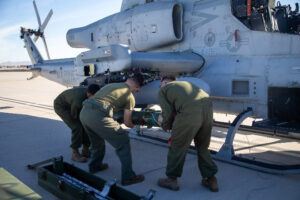
The Army has awarded Lockheed Martin [LMT] a multiple-year deal for procurement of Joint-Air-to-Ground Missiles (JAGM) and Hellfire missiles that could be worth up to $4.5 billion, the company said Monday. “Not only does this contract award support sustained production, but this is the first joint production contact award from the U.S. government for JAGM and Hellfire,” Joey Drake, Lockheed Martin Missiles and Fire Control’s program management director for air-to-ground missile systems, said in a statement. “This contract award, along…

 By
By 











